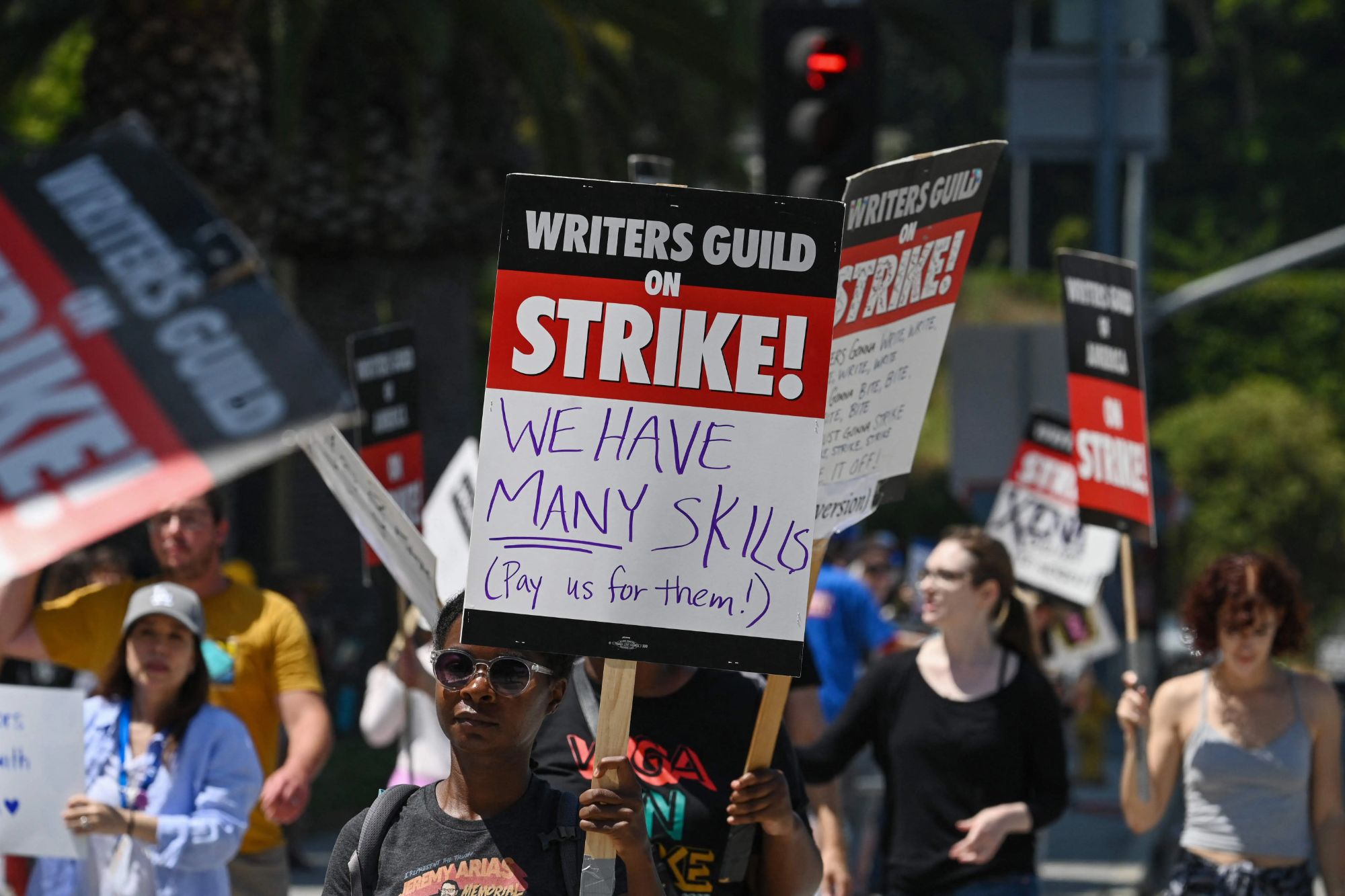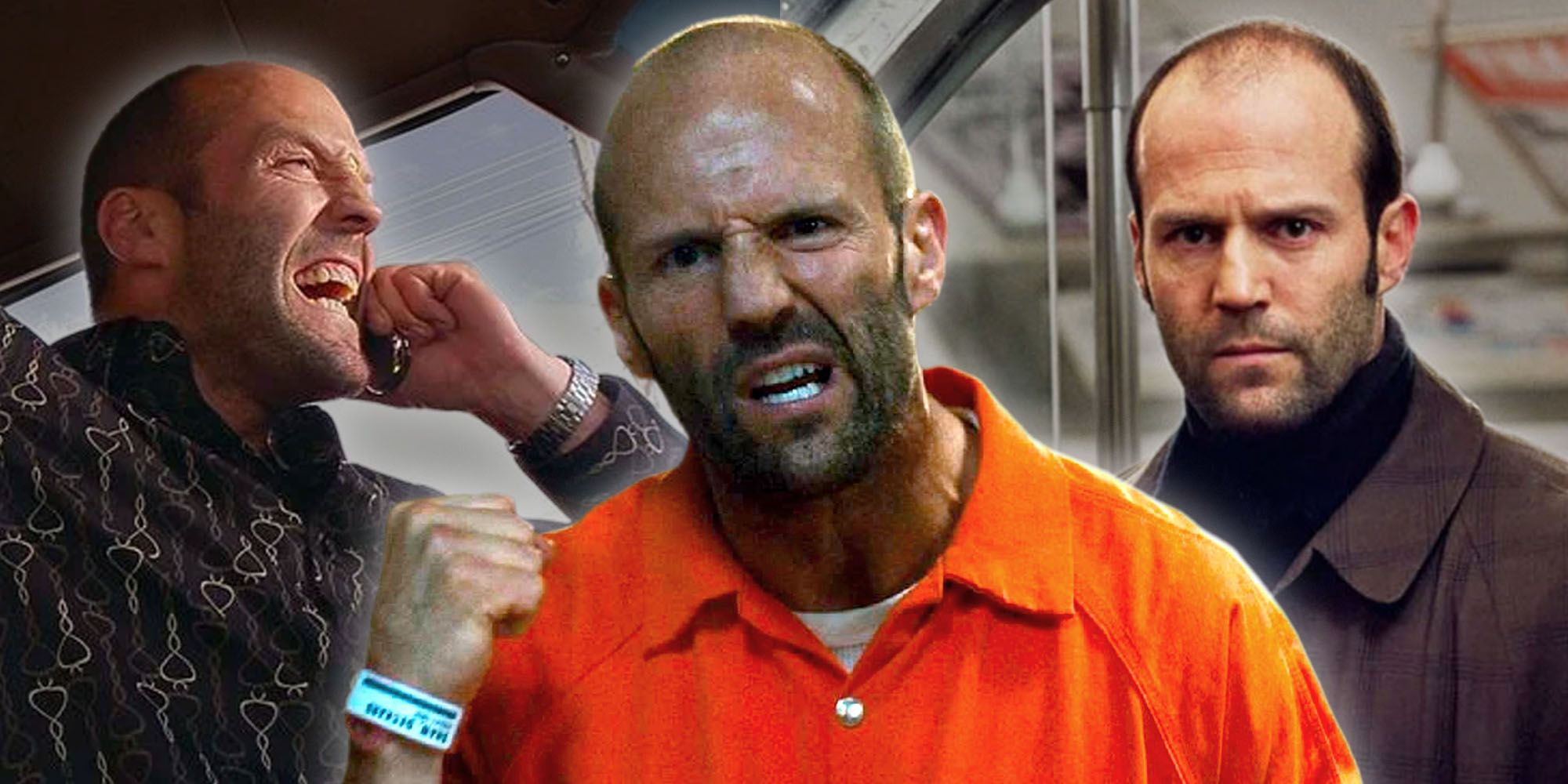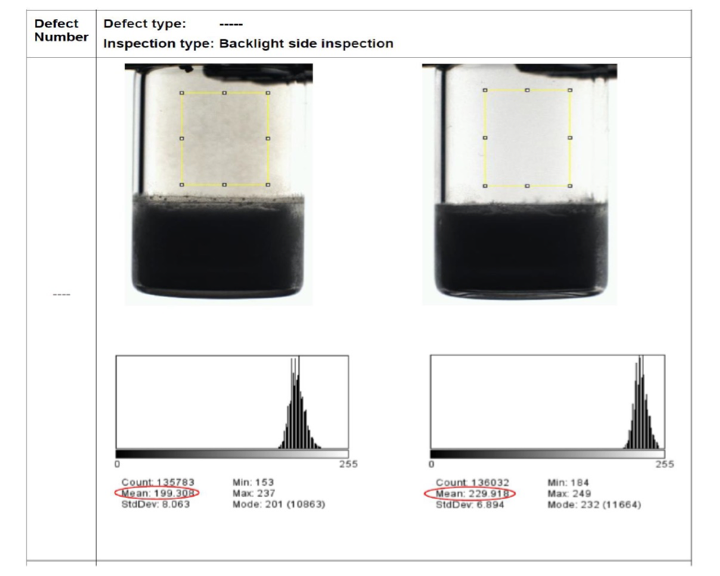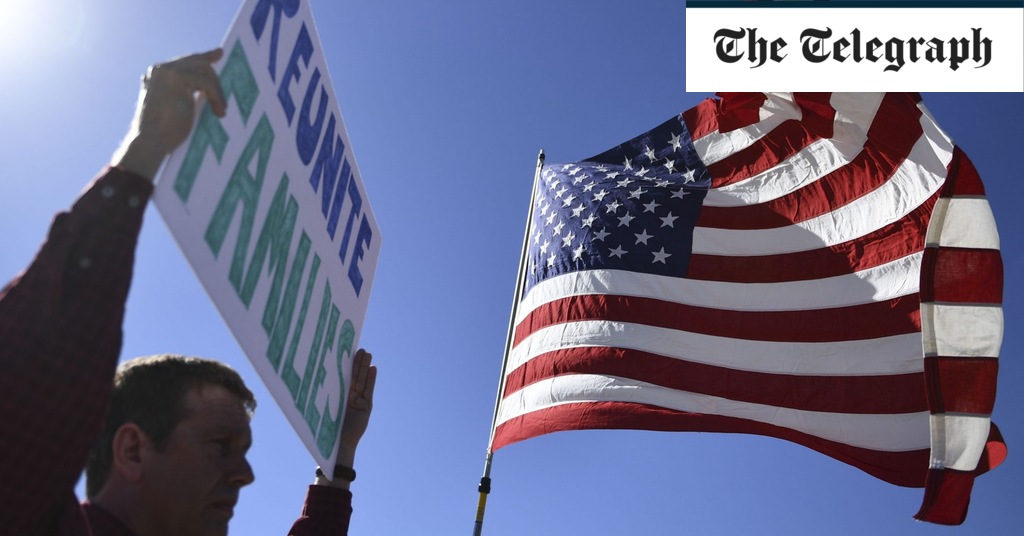Double Trouble In Hollywood: The Writers' And Actors' Joint Strike

Table of Contents
The Writers' Strike: Core Issues and Demands
The WGA's strike, which began in May 2023, highlights the precarious position of writers in the modern entertainment landscape. Their demands are multifaceted, addressing crucial issues that threaten their livelihoods and the future of creative storytelling.
Fair Wages and Residuals in the Streaming Age
The shift from traditional broadcast television to streaming platforms has dramatically altered the compensation model for writers. While broadcast deals traditionally included lucrative residuals based on reruns and syndication, streaming services often offer upfront payments with minimal or no residuals, despite the potential for their content to be viewed millions of times.
- Traditional Broadcast: Residuals paid per episode airing.
- Streaming Model: Often a single upfront payment, regardless of viewership.
- Example: A writer might earn significantly less from a successful streaming series than they would have from a similarly successful broadcast show.
This disparity has led to a significant decline in writers' overall earnings, forcing many to work multiple jobs to make ends meet. Industry reports suggest a substantial drop in average writer income in recent years.
The Rise of AI and its Threat to Writers
The rapid advancement of artificial intelligence poses a significant threat to writers' jobs. AI-powered script generation tools raise concerns about potential job displacement and the devaluation of writers' creative contributions.
- AI Script Generation: Tools capable of generating scripts, potentially reducing the need for human writers.
- Job Displacement: Fear of AI replacing writers, leading to decreased demand and lower wages.
- WGA Demands: Regulations on the use of AI in scriptwriting to protect writers' jobs and creative control.
The WGA is demanding safeguards to prevent AI from replacing human writers and ensure that AI-generated content is properly credited and compensated.
Minimum Staffing Levels and Working Conditions
The WGA also seeks to address issues related to minimum staffing levels and working conditions. Years of reduced staffing on productions have led to increased workloads and excessively long hours for writers.
- Increased Workload: Fewer writers responsible for more work, leading to burnout and compromised creative quality.
- Long Hours: Writers routinely work excessive hours, impacting their well-being and creative output.
- WGA Demands: Improved minimum staffing levels to ensure fair workload distribution and better working conditions.
The union is pushing for improvements in minimum staffing to alleviate the pressure on writers and ensure a healthier and more sustainable work environment.
The Actors' Strike: Similar Concerns, Unique Challenges
SAG-AFTRA's strike, which began shortly after the WGA strike, reflects many of the same concerns, but with unique challenges specific to actors.
Fair Wages and Residuals: An Echo of Writers' Concerns
Actors also face significant challenges regarding fair wages and residuals in the streaming era. Like writers, they often receive minimal compensation for streaming projects compared to traditional broadcast deals.
- Limited Residuals: Streaming deals often fail to provide actors with substantial residuals, even for highly successful shows.
- Self-Tape Auditions: Actors are increasingly required to submit self-tape auditions without compensation, adding to their financial burden.
- Example: A popular streaming series can yield significantly less income for actors than a less popular broadcast show.
This disparity in compensation places undue financial strain on many actors, particularly those without substantial supporting income.
The Use of AI and its Impact on Actors
The use of AI in generating digital versions of actors and in altering their performances poses serious concerns about ownership and control over their likeness.
- Digital Doubles: AI-generated versions of actors used in films and television without their consent or compensation.
- AI Alterations: AI used to modify actors' performances, potentially altering their intended portrayal.
- SAG-AFTRA Demands: Regulations to prevent the unauthorized use of actors' likenesses and AI-generated content without their consent and appropriate compensation.
The union is seeking legal protections to prevent the exploitation of actors' likenesses and ensure they receive fair compensation for any AI-generated use of their images or performances.
Working Conditions and Safety
Actors also face concerns regarding working conditions and on-set safety protocols, including excessively long hours, inadequate rest periods, and insufficient safety measures.
- Excessive Hours: Actors often work extremely long days with minimal rest, impacting their health and well-being.
- Safety Violations: Instances of inadequate safety measures on sets leading to injuries and accidents.
- SAG-AFTRA Demands: Improvements in on-set safety protocols, stricter regulations on working hours, and better protection for actors' health and safety.
The union seeks to improve on-set safety standards and working conditions to ensure a safer and more respectful work environment for actors.
The Impact of the Joint Strike on Hollywood and Beyond
The Writers' and Actors' Joint Strike has far-reaching consequences, impacting not only Hollywood but also the broader economy and culture.
Economic Fallout
The strike has already led to significant financial losses for production studios, related businesses, and the overall economy. The projected economic impact is substantial, potentially affecting numerous related industries like hospitality, catering, and transportation. Estimates of potential losses are reaching into the billions.
The Cultural Impact
The strike has halted production on countless films and TV shows, leading to delays in release schedules and potential reshuffling of future programming. The prolonged disruption could significantly alter the production landscape and creative output of Hollywood.
Public Opinion and Support
Public opinion on the strike is largely supportive, with many recognizing the crucial role of writers and actors in the entertainment industry and their legitimate concerns. Polls and social media sentiment indicate a widespread understanding of the issues at stake.
Conclusion: Navigating the Future of Hollywood After the Double Strike
The Writers' and Actors' Joint Strike represents a pivotal moment for the entertainment industry. The key demands of both the WGA and SAG-AFTRA center around fair wages, residuals in the streaming age, the ethical use of AI, and improved working conditions. This joint action underscores the collective power of creative professionals and their determination to address systemic issues that threaten their livelihoods and the future of storytelling. The outcome of this strike will undoubtedly shape the future of film and television production, potentially leading to significant changes in compensation models, production practices, and the relationship between creative professionals and studios. Stay informed about the ongoing developments of the Writers' and Actors' Joint Strike; consider signing petitions and supporting organizations fighting for fair treatment within the entertainment industry. The fight for a fair Hollywood is far from over.

Featured Posts
-
 Sylvester Stallones Role In Jason Stathams New Action Movie A Setup
May 11, 2025
Sylvester Stallones Role In Jason Stathams New Action Movie A Setup
May 11, 2025 -
 Addressing Challenges In Automated Visual Inspection Of Lyophilized Vials
May 11, 2025
Addressing Challenges In Automated Visual Inspection Of Lyophilized Vials
May 11, 2025 -
 Rossiyskie Atomnye Submariny V Razgovore Putina I Dzhonsona
May 11, 2025
Rossiyskie Atomnye Submariny V Razgovore Putina I Dzhonsona
May 11, 2025 -
 Parliament Demands Halt To Undocumented Labor Migration
May 11, 2025
Parliament Demands Halt To Undocumented Labor Migration
May 11, 2025 -
 World War Hulk The Henry Cavill Wolverine Fan Casting Debate
May 11, 2025
World War Hulk The Henry Cavill Wolverine Fan Casting Debate
May 11, 2025
